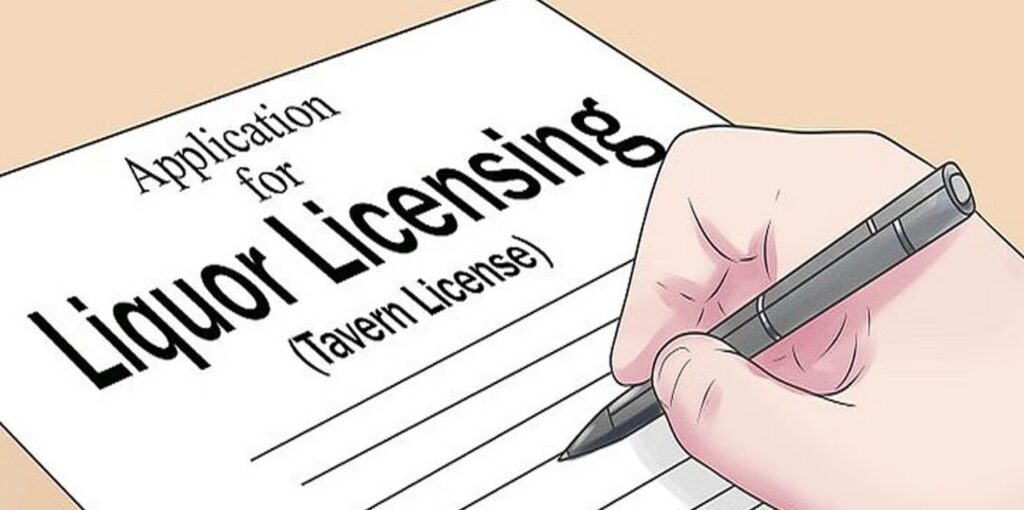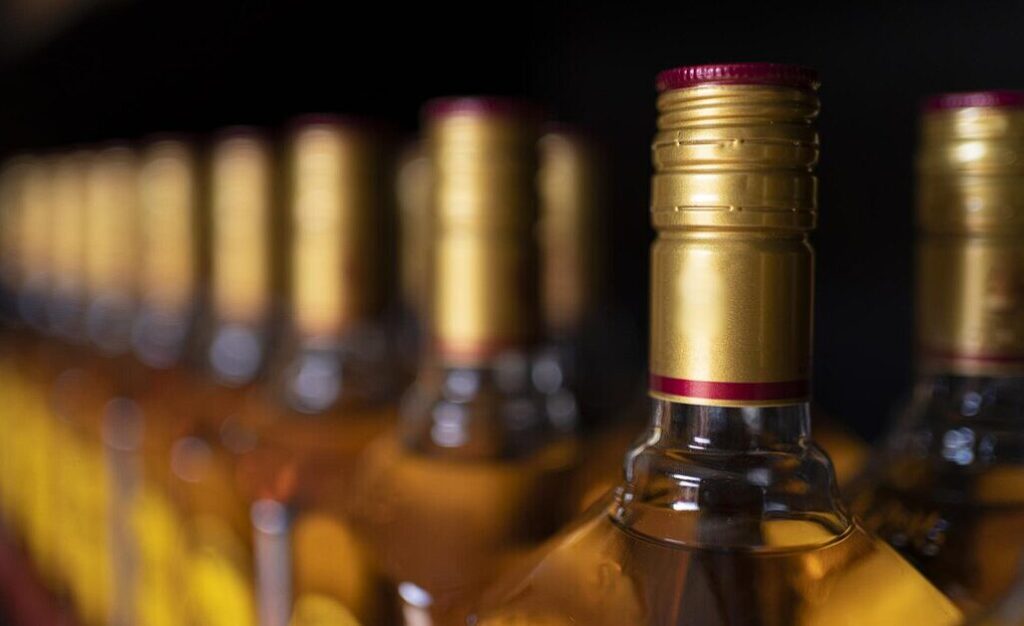Liquor License Online Services
Welcome to MuneemG, the Liquor License Online Services your trusted partner in navigating the intricate landscape of liquor licensing. In this comprehensive guide, we will explore the world of liquor licenses, covering everything from the importance of licensing to the application process, regulatory requirements, and how muneemG can assist you in obtaining and managing your liquor license effectively.

Importance of Liquor License Online Services
Legal Compliance: Operating without a valid liquor license is illegal and can result in severe penalties, fines, and even closure of the establishment.
Public Safety: Licensing regulations help prevent the sale of alcohol to minors, intoxicated individuals, and those with legal restrictions.
Consumer Trust: Holding a liquor license signals to customers that your establishment operates within legal and regulatory frameworks, fostering trust and confidence.
Business Viability: Obtaining a liquor license enables businesses to capitalize on revenue streams from alcohol sales, enhancing profitability and competitiveness in the market.
Community Impact: Liquor licensing laws may vary based on community values and local ordinances, allowing jurisdictions to regulate alcohol sales in alignment with community needs and preferences.
Types of Liquor Licenses:Liquor licenses come in various types and classifications, depending on factors such as the type of establishment, intended alcohol sales, and local regulations. Common types of liquor licenses include:
Retail Liquor License: Allows businesses to sell packaged alcoholic beverages for off-premises consumption, such as liquor stores and convenience stores.
On-Premises Liquor License: Permits businesses to sell alcoholic beverages for on-site consumption, including bars, restaurants, clubs, and hotels.
Catering Liquor License: Authorizes caterers and event venues to serve alcoholic beverages at private events and functions.
Brewery, Winery, or Distillery License: Grants permission to produce and sell alcoholic beverages on-site, including breweries, wineries, and distilleries.
Special Event Liquor License: Temporarily permits the sale and consumption of alcohol at special events, festivals, and fundraisers.
The Liquor License Application Process
Research and Preparation: Research the specific licensing requirements, regulations, and fees applicable to your jurisdiction and establishment type. Prepare all necessary documentation, including business permits, zoning approvals, financial statements, and background checks for owners and managers.
Submit Application: Complete the liquor license application form accurately and provide all required information and documentation. Submit the application to the relevant licensing authority or regulatory agency, along with any applicable fees or deposits for Liquor License Online Services.
Background Checks and Investigations: The licensing authority may conduct background checks and investigations to verify the suitability of the applicant and ensure compliance with legal requirements. This may include criminal background checks, financial disclosures, and inspections of the premises.
Public Notice and Hearings: In some jurisdictions, applicants may be required to publish public notices or attend hearings to address any objections or concerns raised by the community or stakeholders. Compliance with local zoning ordinances and community standards may also be assessed during this stage.
Approval and Issuance: Once the application review process is complete and all requirements are met, the licensing authority will issue the liquor license.The license will specify the type of alcohol sales permitted, operating hours, and any additional conditions or restrictions.
Renewal and Compliance: Liquor licenses are typically subject to renewal on an annual or periodic basis, requiring businesses to maintain compliance with ongoing regulatory requirements and payment of renewal fees. Failure to comply with licensing conditions or regulatory obligations may result in license suspension, fines, or revocation.
How MuneemG Can Assist Liquor License Online Services
- Consultation and Compliance Assessment: We provide expert guidance on liquor licensing requirements, helping businesses navigate regulatory frameworks and ensure compliance with local laws and regulations.
Application Preparation and Submission: Our team assists in preparing and submitting liquor license applications, including documentation, forms, and supporting materials required by licensing authorities.
Regulatory Liaison: We act as a liaison between businesses and regulatory agencies, facilitating communication, addressing inquiries, and resolving issues related to the licensing process.
Renewal and Compliance Management: We help businesses manage liquor license renewals, track compliance deadlines, and address any regulatory changes or updates affecting alcohol sales and distribution.
Training and Education: We offer training programs and educational resources to help businesses and staff understand liquor licensing requirements, responsible alcohol service practices, and legal obligations.
Review and Processing: Upon submission, the licensing authority reviews the application and conducts necessary checks to ensure compliance with regulatory requirements, including zoning laws, health and safety standards, and background checks.
Payment and Fee Processing: Applicants can make payments for license fees, application processing fees, and other associated charges securely through the online platform. The online payment system accepts various payment methods.
License Issuance: Once the application is approved and all necessary requirements are met, the liquor license is issued electronically through the online platform. The license may be downloaded and printed by the applicant we provide Liquor License Online Services.



The Scope of a Liquor License
Type of Establishment:The scope of a liquor license is often tailored to the type of establishment seeking the license. This may include bars, restaurants, hotels, liquor stores, clubs, catering services, breweries, wineries, and distilleries.
Types of Alcohol:The scope of a liquor license may specify the types of alcoholic beverages that can be sold or served by the licensee. This can include beer, wine, spirits, liqueurs, and other alcoholic beverages.
On-Premises vs. Off-Premises Sales:Depending on the type of license, establishments may be authorized for on-premises consumption, off-premises sales, or both. On-premises licenses allow for the consumption of alcoholic beverages within the licensed premises, while off-premises licenses permit the sale of packaged alcohol for consumption elsewhere.
Hours of Operation:Liquor licenses often stipulate the permissible hours of operation during which alcohol sales and consumption are allowed. These hours may vary based on local regulations, the type of establishment, and specific licensing conditions.
Age Restrictions:The scope of a liquor license typically includes regulations related to age restrictions for the sale and consumption of alcoholic beverages. Licensees are required to comply with legal drinking age requirements and refrain from serving alcohol to minors or individuals under the legal drinking age.
Special Events and Catering:Some liquor licenses may include provisions for catering services and special events, allowing licensees to serve alcohol at private functions, weddings, festivals, and other gatherings. Special event permits may be required for temporary alcohol service outside of the licensed premises.
Manufacturing and Distribution:In addition to retail and hospitality establishments, liquor licenses may also cover manufacturing and distribution activities related to alcoholic beverages. Breweries, wineries, and distilleries, for example, require licenses to produce and distribute beer, wine, and spirits.
Compliance and Regulatory Requirements:Licensees are expected to comply with all relevant regulatory requirements, including health and safety standards, zoning ordinances, fire codes, and responsible alcohol service practices. Failure to comply with licensing conditions and regulations can result in fines, penalties, or license revocation.
Local Regulations and Conditions:The scope of a liquor license may be influenced by local ordinances, state laws, and regulatory conditions specific to the jurisdiction in which the license is issued. Licensees are responsible for understanding and adhering to all applicable regulations and conditions associated with their liquor license.
Renewal and Compliance Monitoring:Liquor licenses are typically subject to renewal on an annual or periodic basis. Licensees are required to maintain compliance with licensing conditions, submit renewal applications, and adhere to ongoing regulatory requirements. Know more
